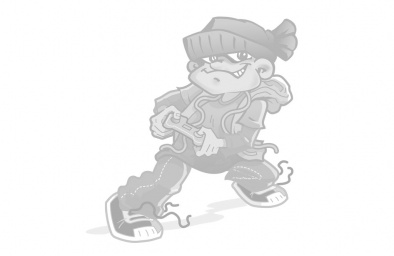A GROUND-BREAKING STUDIO REVEALS THAT VIDEO GAMES HELP CHILDREN FIGHTING CANCER
Juegaterapia presents the documentary film "When you play chemo flyes by" based in a studio published in the "Journal of Medical Internet Research", which proves gaming helps with cancer therapy
- A scientific research conducted by Juegaterapia Foundation in the Hospital La Paz (Madrid) proves that pediatric cancer patients who suffer post-chemotherapy mucusitis (one of the most painful side effects of this treatment) feel less pain when they are playing video games
- This research showed a 20% decrease in morphine usage in these children, as well as a 14% increase in parasympathetic tone – responsible to a great extent for their physical recovery --, which favors a swifter recovery
- These conclusions suggest that video games could be offered as non-pharmacological painkillers in cases of pediatric cancer mucusitis, and thus join health care protocols for these patients
- The documentary "When you play chemo flyes by" – created by the Foundation and with world-famous singer Alejandro Sanz as narrator – proves that playing cures!
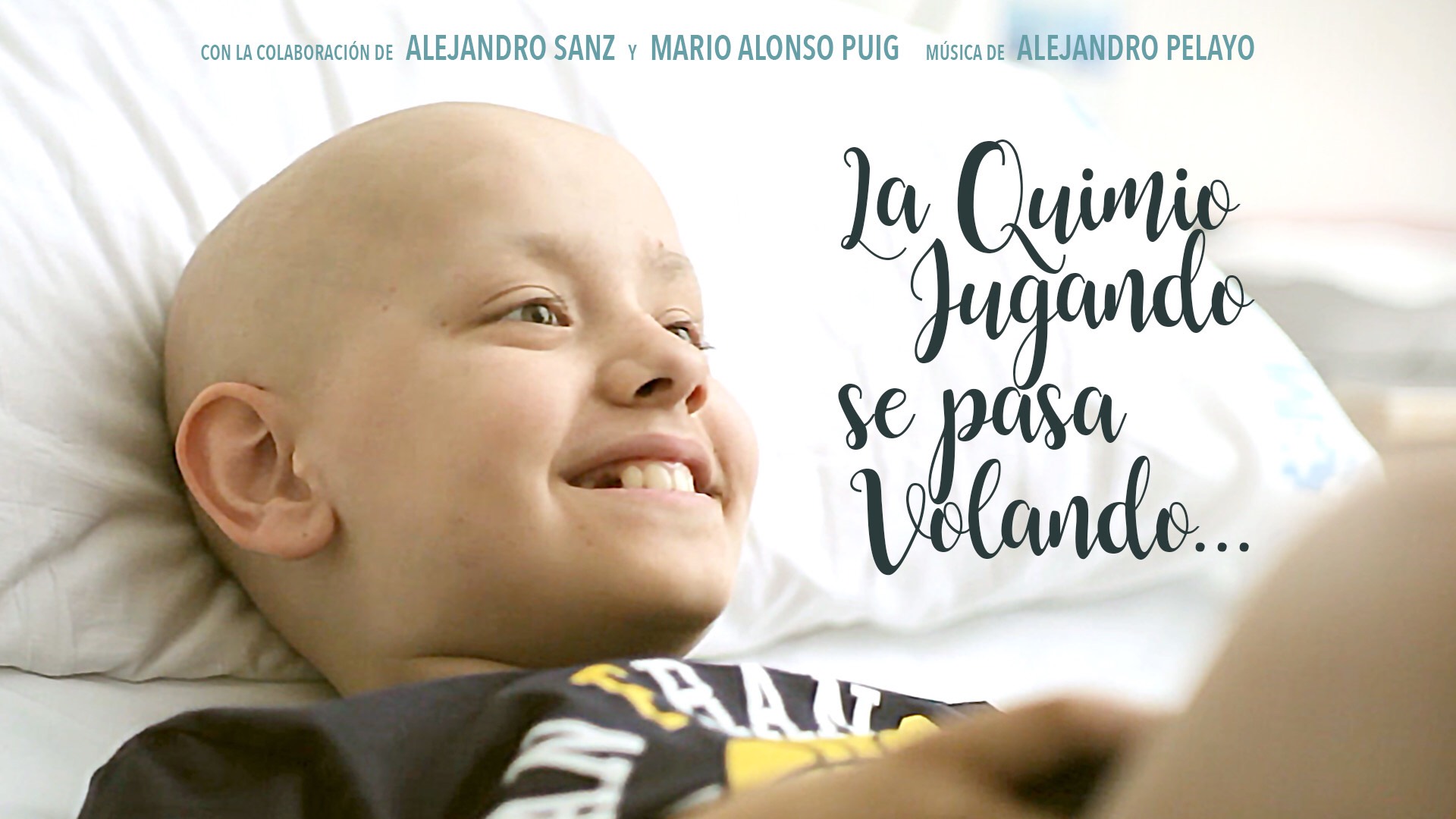
January 19th, 2021. For the last 10 years, the Juegaterapia Foundation has been devoted to helping children with cancer with the motto "when you play, chemo flyes by". In this time, the Foundation has brought games consoles to pediatric cancer rooms in hospitals in Spain (its country of origin) among other countries. Now, a ground-breaking scientific research, promoted by the foundation, has confirmed that playing video games during their therapies make children feel less pain and favor their recovery.
This is the first time that the positive effects of playing games on handling acute pain are measured. The psychological benefits of playing have been demonstrated before – children felt less anxiety at their hospitalization, and that helped them to be more relaxed in these challenging situations.
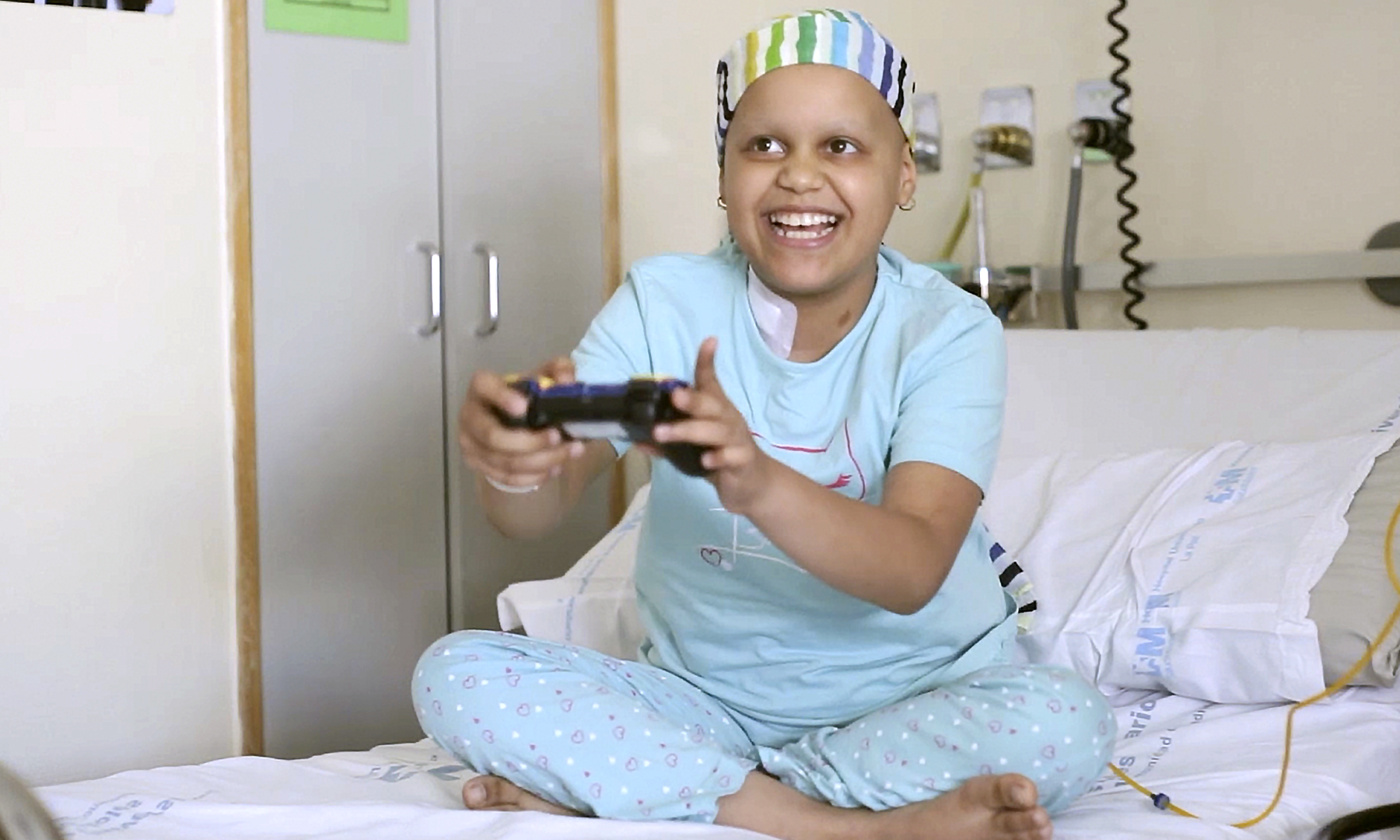
The research compares the influence of video games usage on children's pain, the morphine dosage needed, and the activation levels of the sympathetic/parasympathetic systems, all thanks to cutting-edge monitoring devices (Analgesia-Nocicepción Index and Algiscan).
The touching documentary film "When you play chemo flies by" shows the process of this research. Its protagonists are sick children, their families, and the medical team of the Hospital La Paz – led by M.D.Francisco Reinoso Barbero, head of the Pain Management Unit of the Children's Hospital La Paz (Madrid), and M.D. Mario Alonso Puig, honorific trustee of the Juegaterapia Foundation. They all talk about their experience, both from a personal and scientific point of view. And to top it all, the film is narrated by Alejandro Sanz, Spanish singer of international fame, with 21 Grammy awards under his belt.
The film (already available on Amazon Prime Video and Filmin) displays the real testimonies of the children Estephany, Dani, Mario, Carlos, Marcos, Aaron, David, Héctor, Alejandro, and Manuel – who, along with their families, explain what cancer was for them and how video games helped them to overcome it.
The Juegaterapia Foundation calls on the gaming community for donating consoles, now that Christmas have passed – a time when many gamers receive consoles as presents that replace their old ones. Besides, the Foundation hopes that these results will reach hospital managers, so they can consider including video games in their therapy protocols.
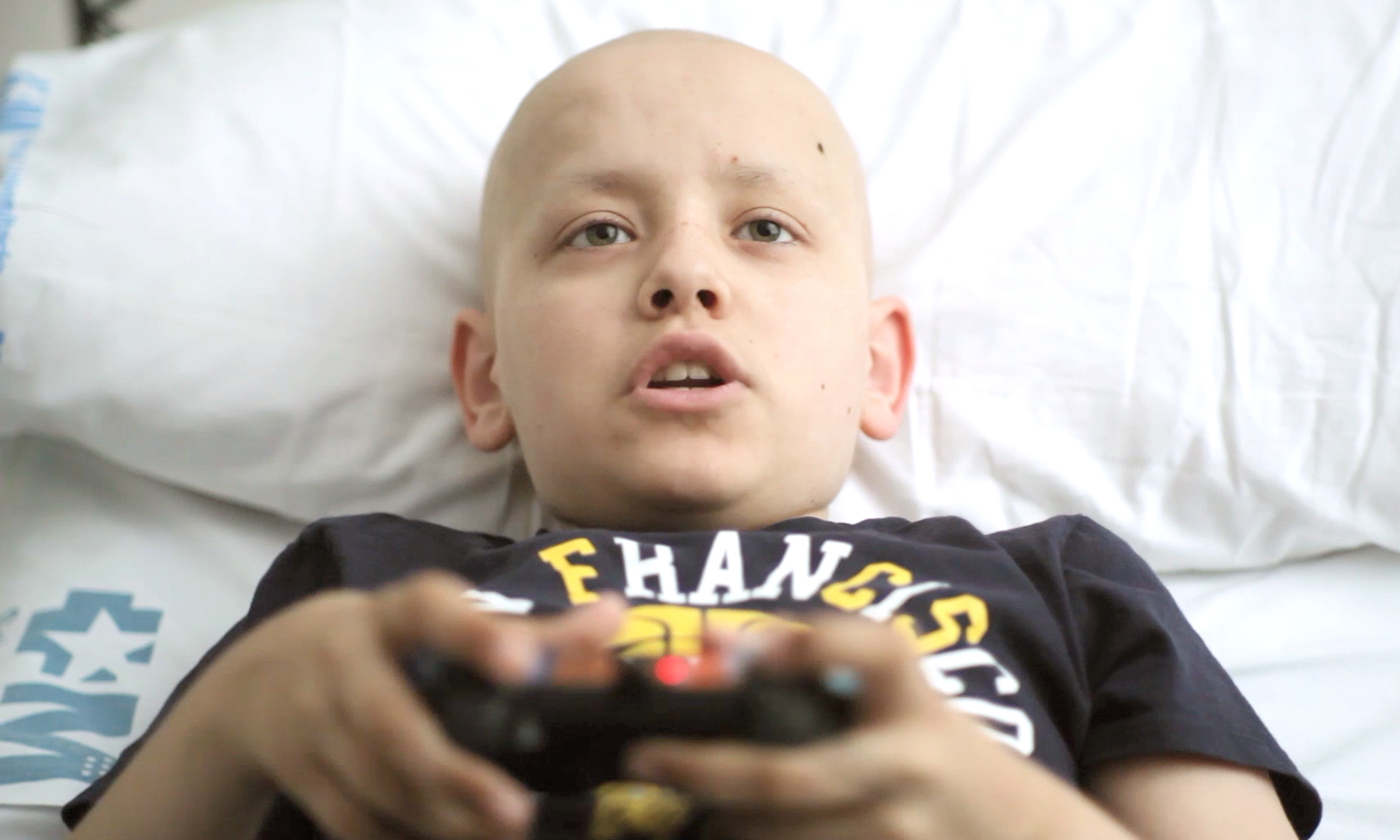
The research, in numbers
- 20% less morphine while playing games
The pain these children felt can be objectively considered reduced, as shown by a 20% decrease in the daily usage of morphine. This refers to basal pain but also the general mood, with a reduction of 44% in incidental pain. This was measured with a Visual Analogue Scale.
- Increase of 14% in parasympathetic tone, which favors recovery
Acute nociception (conscious perception of pain) is associated with changes in the sympathetic-parasympathetic balance regulation. When facing a physical threat, our bodies activate the sympathetic system to help us flee the perceived aggression – but at the same time it affects us negatively due to an increase in arterial tension and heart rate (among other symptoms). The way to counter this situation is the activation of the parasympathetic system, which favors physiological recovery.
- A 14% decrease in pain
During this research, children with cancer who suffered mucusitis (one of the most painful side effects of chemotherapy, which makes even gulping impossible) were offered video games while they were controlled by two devices: on the one hand, the Analgesia-Nociception Index (ANI R), which measures heart rates, and video-pupilmetrics Algiscan R. The results showed there were no changes in pupil size despite a smaller morphine dosage, which points at a 14% increase in parasympathetic tone and a pain relief of 14%.
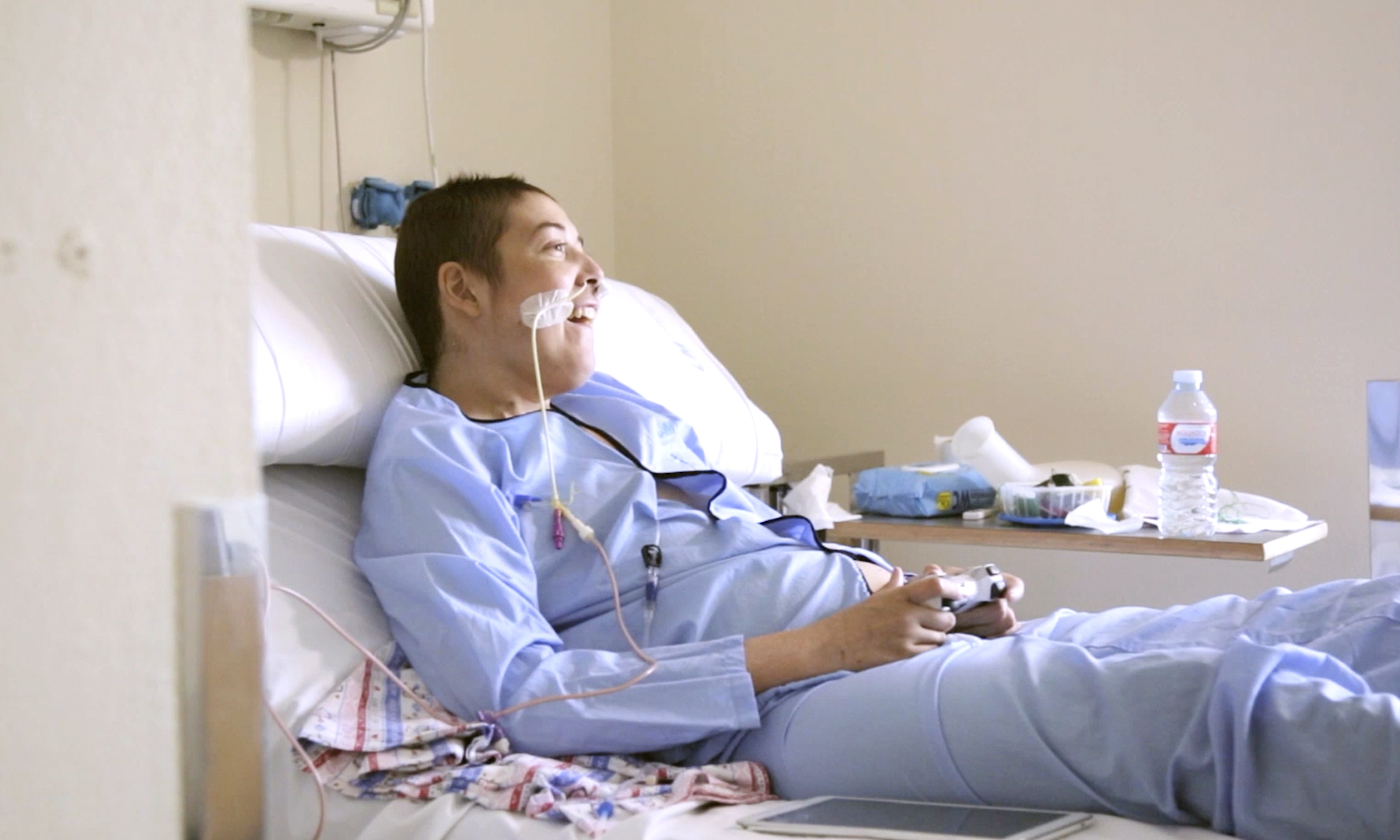
The medical experts' speak up:
Francisco Reinoso-Barbero, Head of the Pain Management Unit in the Children's Hospital La Paz (Madrid), co-author of this research, points that "the medical implication of these discoveries are important, because video games could become a part of the non-pharmacological therapeutical plan against pediatric cancer mucusitis".
As Mario Alonso Puig states (M.D., public speaker, and honorific trustee of the Juegaterpia Foundation), "a situation as challenging as being hospitalized activates the sympathetic nervous system of children with cancer. It rallies the organism to flee against a threat, a danger. But these children can't flee – they are somehow "tied" to their chemotherapy. When this system is active for a long time it can have very negative effects on your body. The same part of our nervous system that protects us against certain types of threats is acting against us – it overloads the heart, increases blood tension and makes it harder for the immune system to work, and it is just vital to face the illness".
However, Dr. Alonso Puig adds, "when a child is engrossed in a game they love, this whole process of generating disturbing thoughts, pain, and anxiety stops. Thanks to being fully wrapped up in the game, children activate their parasympathetic system. This second area of the vegetative nervous system has two functions: on the one hand, it favors social interaction; on the other, it helps to keep the internal balance of the organism, the homeostasis, which in turn reduces the wear of other body organs".
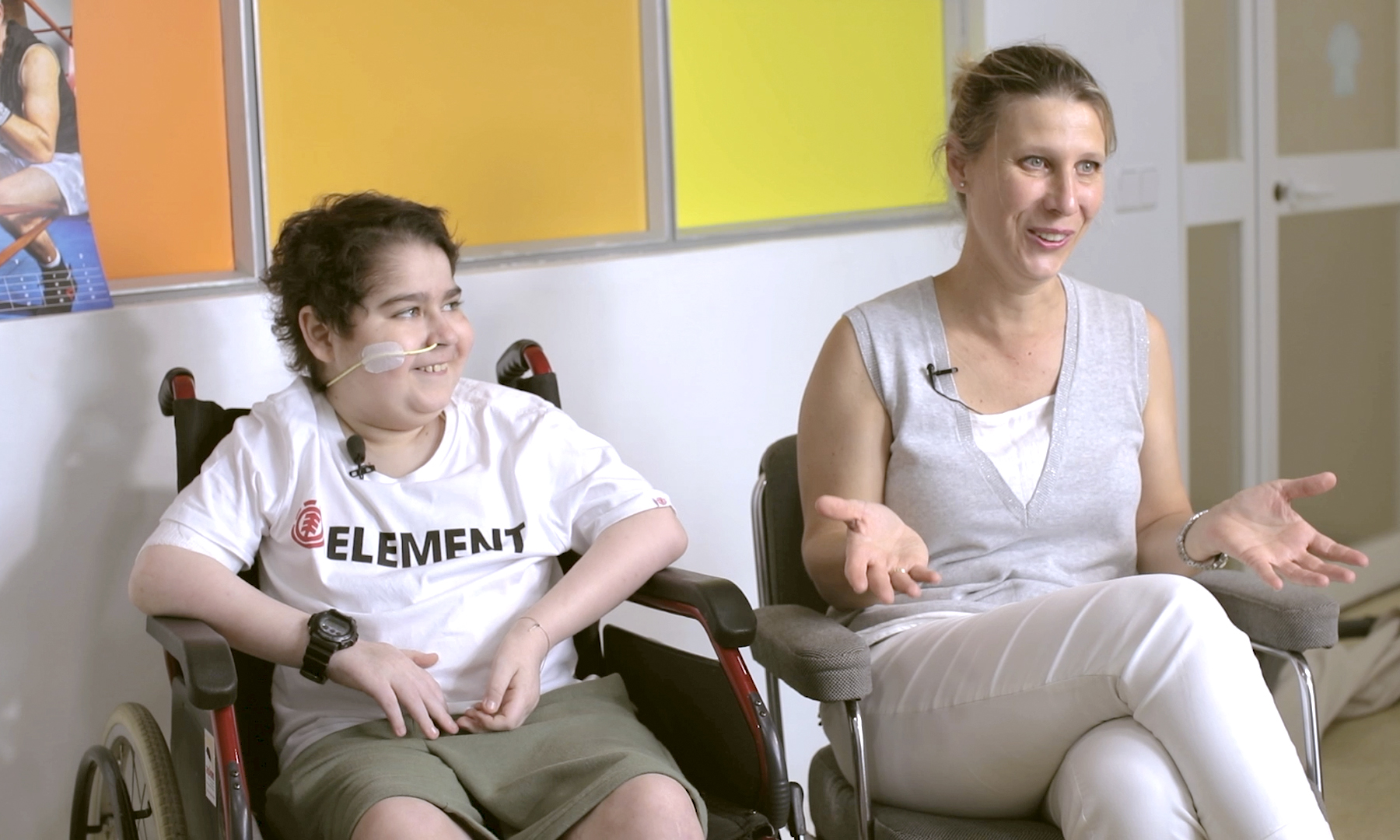
Besides, as Dr. Alonso Puig points, "we can see how these children relax, how their tensions ease, which shows they feel safe. At the end of the day, it all sums up to a phrase: when you play, chemo flies by".
This research has been published in the "Journal of Medical Internet Research", in a paper titled "The Association Between Pain Relief Using Video Games and an Increase in Vagal Tone in Children With Cancer: Analytic Observational Study With a Quasi-Experimental Pre/Posttest Methodology". M.D. Mario Alonso Puig, Honorific Trustee of the Juegaterapia Foundation; M.D. Francisco Reinoso-Barbero, Head of Anesthetic of the Children's Hospital La Paz and member of the Royal Academy of Medicine; as well as Diego Plaza López de Sabando, Mercedes Alonso Prieto, Jordi Miró, and Raquel Torres-Luna.
https://www.jmir.org/2020/3/e16013/
Special thanks to Sony Interactive Entertainment Spain (SIE Spain) -- without their generous donation of consoles, games and other resources, this research would not have been possible.
The Foundation wants to thank the production company 925 Sintagma, director Marcos Calle, musicial Alejandro Pelayo, singer Alejandro Sanz and la Fuerza del Corazón, companies Prhoinsa and Dräger Medical Hispania, and translator Cristina Berry for their generosity and voluntary work.





